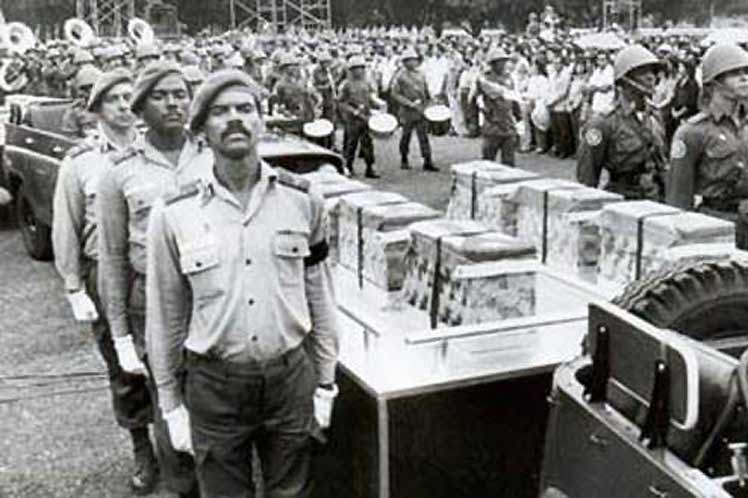Havana: The pain for the fallen in Angola persists today in Cuba, when it is 31 years since the return to the Island of the mortal remains of those who sacrificed their lives for the independence of that African country, Prensa Latina publishes.
The so-called Operation Tribute included the repatriation of the more than 2,000 Cuban combatants killed in internationalist missions in Africa and their burial on December 7, 1989 on Caribbean soil.
On November 5, 1975, at the request of the Popular Movement for the Liberation of Angola, the Cuban Government decided to directly support said nation, thus initiating Operation Carlota.
The island’s contribution made it possible to preserve the independence of that country, and influenced the liberation of Namibia (in March 1990) and the end of the apartheid system of racial segregation in South Africa. Due to the conditions of the war, it was impossible to transfer the corpses until December 1989.
Carrying on the shoulders of the people, they found a burial in the pantheons of the fallen prepared throughout the country, on a day that coincided with the 93rd anniversary of the death in combat of the hero of Cuban independence Antonio Maceo.
The central ceremony took place that December 7 at the Mausoleum of General Antonio Maceo in Cacahual, in Havana.
“At this time, the remains of all the internationalists who fell in the fulfillment of their noble and glorious mission are buried simultaneously, in all the corners from which they came”, the historic leader of the Revolution, Fidel. Castro, leader of the mission, said.
In the act of farewell to those who fell in the deed, he described it as a “true feat of our people”, and said that “seldom has an equal page of altruism and international solidarity been written”.
December 7 will become a day of remembrance for all Cubans who gave their lives not only in defense of their homeland, but also of humanity. In this way, patriotism and internationalism, two of the most beautiful values that man has been able to create, will be united forever in the history of Cuba”, he emphasized.
Guards of honor were held as part of the wake, while the people continually marched past coffins and ossuaries to pay homage. From 1975 to 1991, around 300,000 Cubans left their mark on the epic in Africa.

